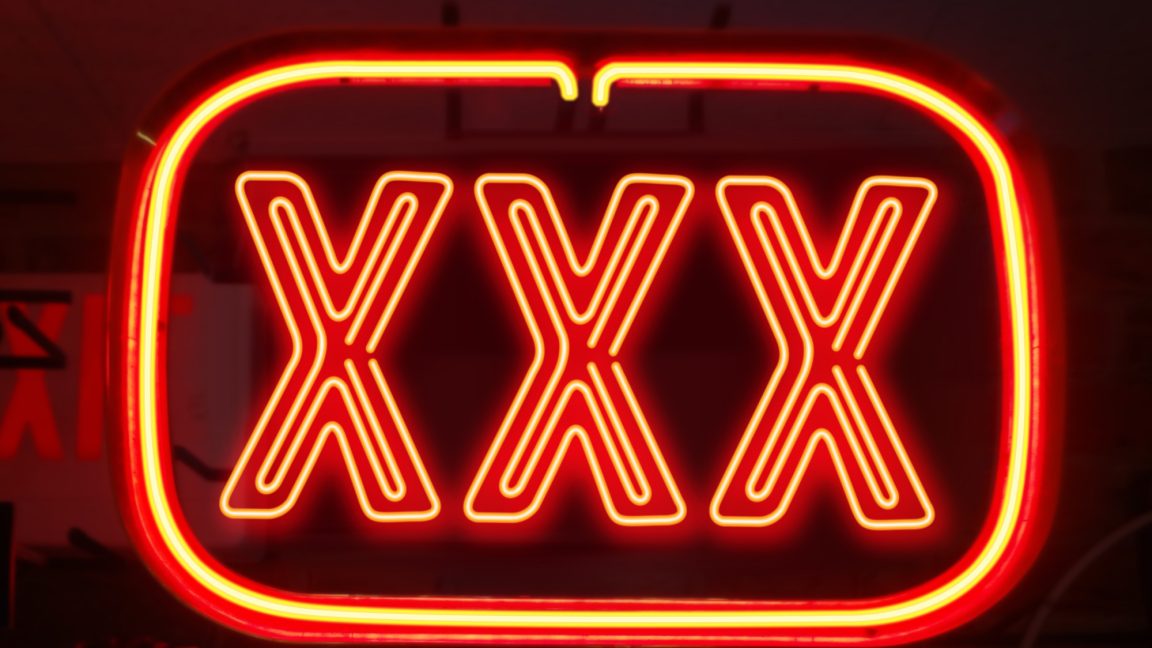It's getting harder to access popular adult sites in the US South.
On Wednesday, Pornhub's owner, Aylo, kicked off the new year by blocking two more states that implemented age verification laws requiring ID to access porn, Florida and South Carolina. According to 404 Media, these states are now among 16 states where Aylo sites, including Pornhub, RedTube, and YouPorn, cannot be accessed. Tennessee also risked being blocked, but a court preliminarily blocked its age-verification law from taking effect.
The other blocked states are Alabama, Arkansas, Idaho, Indiana, Kansas, Kentucky, Mississippi, Montana, Nebraska, North Carolina, Oklahoma, Texas, Utah, and Virginia. Mapping it out, 404 Media noted that the Aylo blackout spans nearly the entire US South, with Georgia's age verification law set to take effect in July and likely to trigger another block that would almost complete the blackout.
When users in any of the blocked states attempt to access sites like Pornhub, they see a message from adult performer Cherie Deville informing them that access is blocked for their own safety.
Aylo has long argued that age verification laws intended to protect kids from accessing adult content are flawed. Rather than keeping kids away from adult materials, these laws actually serve to restrict adult activity online, Aylo argues.
Aylo also says that requiring ID simply drives adult users to riskier adult sites that won't comply with laws or moderate content wrongfully uploaded without performers' consent, as Pornhub and other Aylo sites claim to do. And requiring adult sites to store personal information about each user also poses privacy risks, Aylo warned in a statement to 404 Media.
"First, to be clear, Aylo has publicly supported age verification of users for years, but we believe that any law to this effect must preserve user safety and privacy and must effectively protect children from accessing content intended for adults," Aylo said. "Unfortunately, the way many jurisdictions worldwide, including Florida, have chosen to implement age verification is ineffective, haphazard, and dangerous. Any regulations that require hundreds of thousands of adult sites to collect significant amounts of highly sensitive personal information is putting user safety in jeopardy. Moreover, as experience has demonstrated, unless properly enforced, users will simply access non-compliant sites or find other methods of evading these laws."
Perhaps the easiest way to evade state age verification laws is by using a VPN to mask a user's location. According to a report from VPNMentor's cybersecurity and research lab, VPN use in Florida jumped by as much as 1,150 percent within hours of the age verification law coming into force on January 1. That's even higher than the 967 percent spike in VPN use that VPNMentor saw in Utah in 2023 and substantially higher than a Texas spike of 234 percent—perhaps indicating that users are getting savvier at quickly securing VPN workarounds.
Some First Amendment advocates, including the Free Speech Coalition, have joined Aylo's fight and are pushing the Supreme Court to block Texas' law. Many digital rights advocates and First Amendment scholars have filed briefs in support of the Free Speech Coalition, which has urged the Supreme Court to agree that Texas' law is not narrowly tailored and "burdens vast quantities of speech protected for everyone." If advocates win, the Supreme Court may order an injunction that could impact all states that passed essentially copycat legislation, potentially ending Aylo's long war against "haphazard" age-verification laws in the US.
In its most recent filing, Texas argued that only intermediate scrutiny should be applied, pushing SCOTUS to agree that Texas has no other remedy to protect kids online. Texas claims that if Pornhub can verify the ages of content providers, it should have no problem verifying the ages of viewers.
Oral arguments in that case begin on January 15.
This post was updated on January 2 to clarify that Tennessee has not been blocked.


